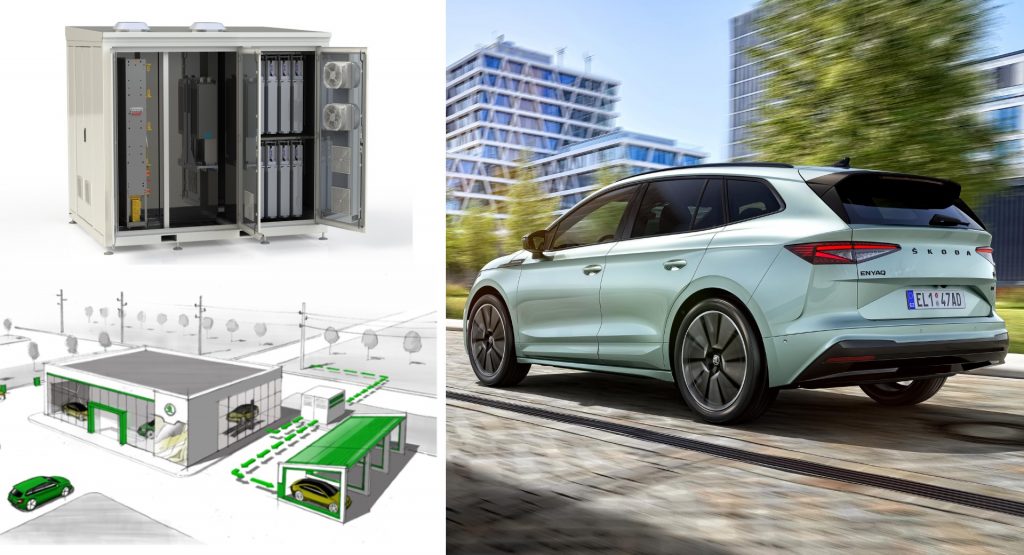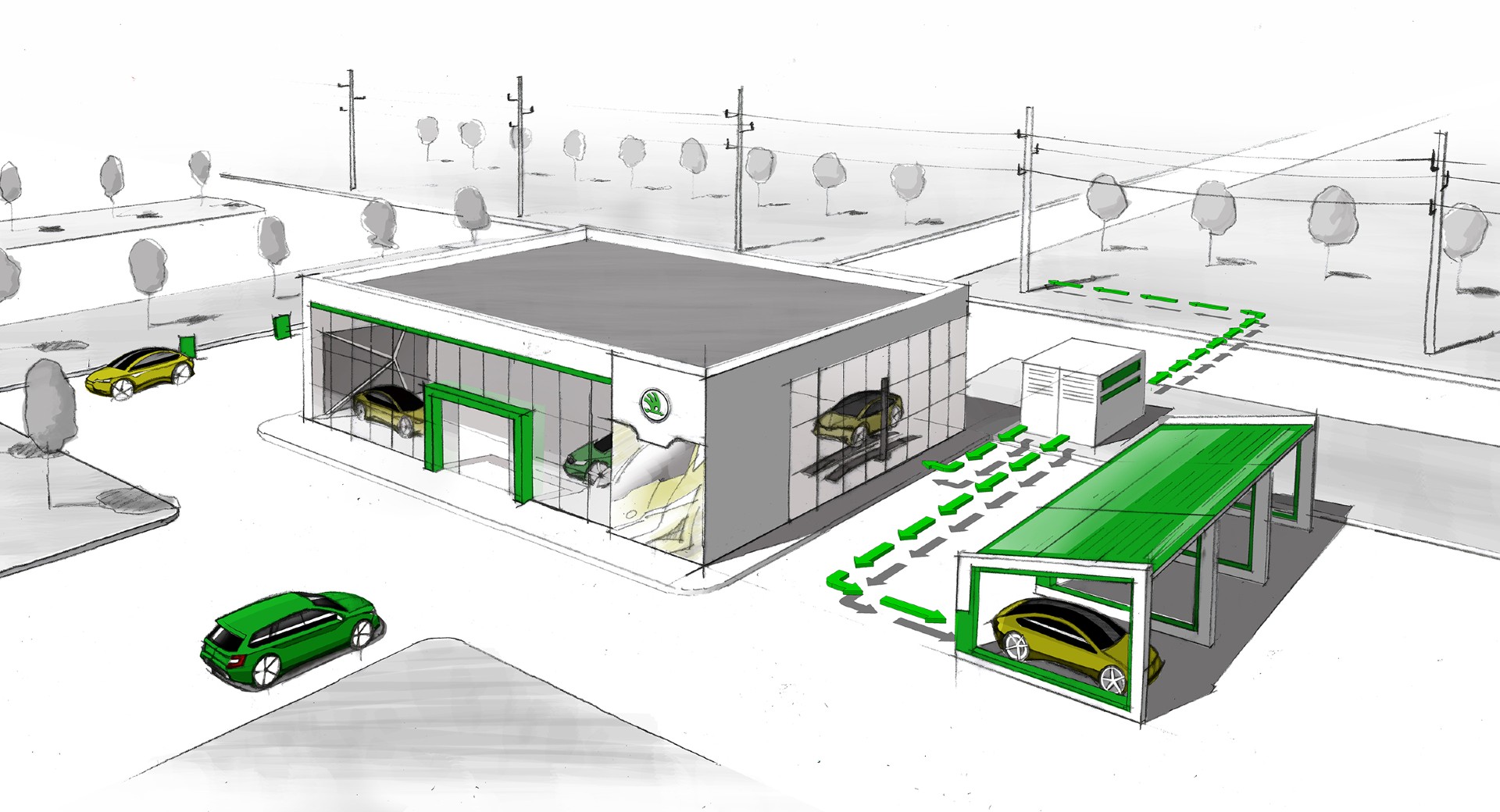Skoda announced that the used lithium-ion batteries from its PHEV and BEV models will be installed in special hubs providing sustainable energy for powering retailers and workshop buildings, as well as charging infrastructure.
The Czech automaker is planning on expanding its iV range in the near future, which means there will be tons of used batteries available for a second life after the 8-year warranty period is over.
The hubs were designed in collaboration with the Czech technology company IBG Česko. Each one can hold up to 20 x 13 kWh batteries from PHEV models (Octavia iV and Superb iV), or up to 5 x 82 kWh batteries from BEV models (Enyaw iV). The total capacity can reach 328 kWh, with the ability to channel it through 150 kW fast chargers. The units will be scalable, so each retailer can change their capacity according to their needs.
The battery hubs will be able to store energy from photovoltaic systems, and then use it at any time to power the lights and AC units in the showroom or workshop buildings. They will also send power to the chargers located outside the showroom, compatible with PHEV and BEV vehicles.
The first hubs using batteries from pre-production prototypes were successfully tested in Prague during a pilot program. The next step is to use them in Skoda retailers in Europe, starting with the 160 preorders coming from Czech Republic, Germany, Netherlands, and Slovakia, with a potential extension in the UK. Skoda has the potential to produce more than 4,000 hubs in the coming years.
Thanks to the new system, the useful life of battery packs will be extended by up to 15 years, further reducing their carbon footprint. Following the second life of the batteries, Skoda will recover raw materials in order to use them for new batteries.









